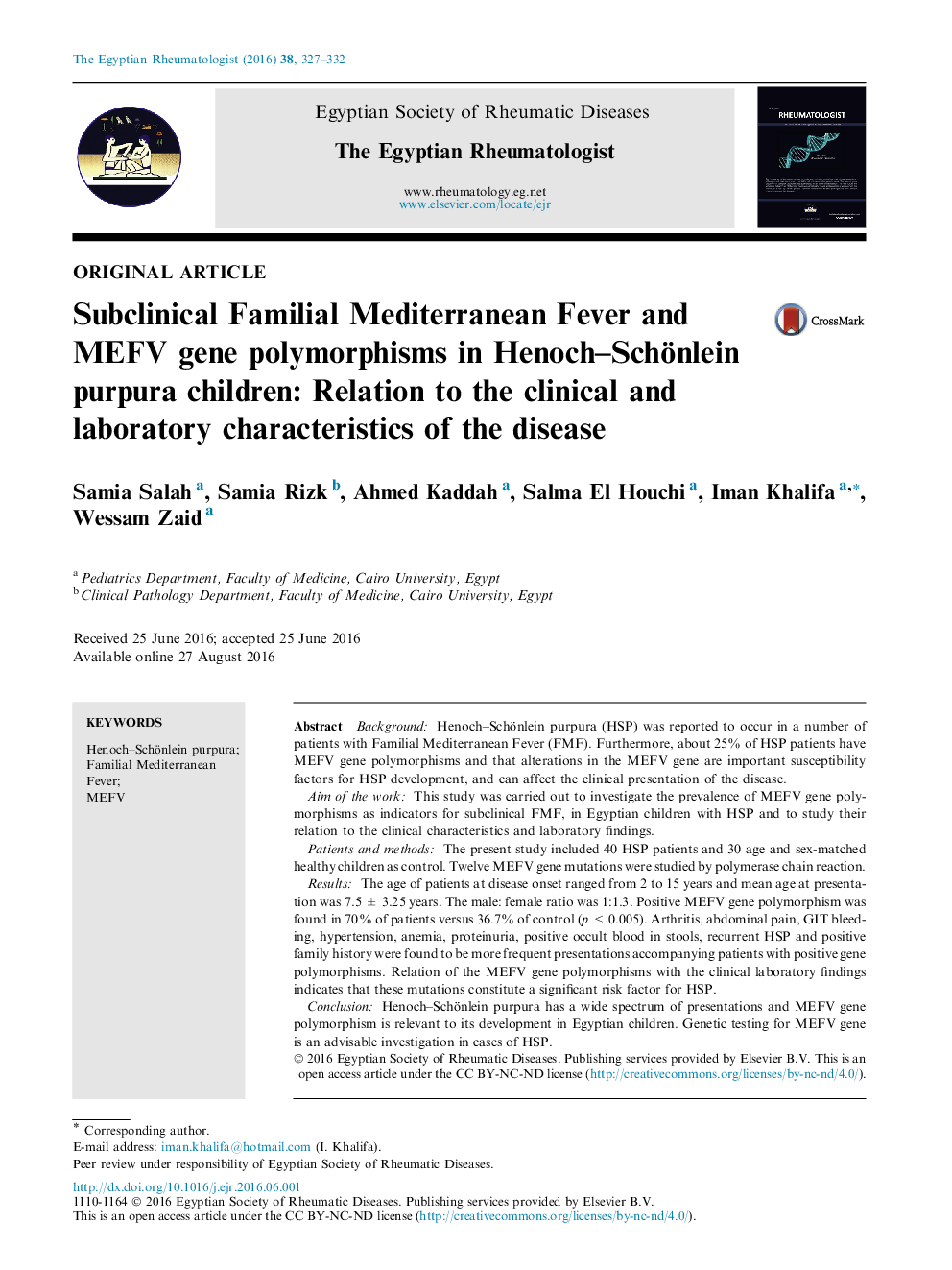| Article ID | Journal | Published Year | Pages | File Type |
|---|---|---|---|---|
| 5666093 | The Egyptian Rheumatologist | 2016 | 6 Pages |
BackgroundHenoch-Schӧnlein purpura (HSP) was reported to occur in a number of patients with Familial Mediterranean Fever (FMF). Furthermore, about 25% of HSP patients have MEFV gene polymorphisms and that alterations in the MEFV gene are important susceptibility factors for HSP development, and can affect the clinical presentation of the disease.Aim of the workThis study was carried out to investigate the prevalence of MEFV gene polymorphisms as indicators for subclinical FMF, in Egyptian children with HSP and to study their relation to the clinical characteristics and laboratory findings.Patients and methodsThe present study included 40 HSP patients and 30 age and sex-matched healthy children as control. Twelve MEFV gene mutations were studied by polymerase chain reaction.ResultsThe age of patients at disease onset ranged from 2 to 15 years and mean age at presentation was 7.5 ± 3.25 years. The male: female ratio was 1:1.3. Positive MEFV gene polymorphism was found in 70% of patients versus 36.7% of control (p < 0.005). Arthritis, abdominal pain, GIT bleeding, hypertension, anemia, proteinuria, positive occult blood in stools, recurrent HSP and positive family history were found to be more frequent presentations accompanying patients with positive gene polymorphisms. Relation of the MEFV gene polymorphisms with the clinical laboratory findings indicates that these mutations constitute a significant risk factor for HSP.ConclusionHenoch-Schӧnlein purpura has a wide spectrum of presentations and MEFV gene polymorphism is relevant to its development in Egyptian children. Genetic testing for MEFV gene is an advisable investigation in cases of HSP.
